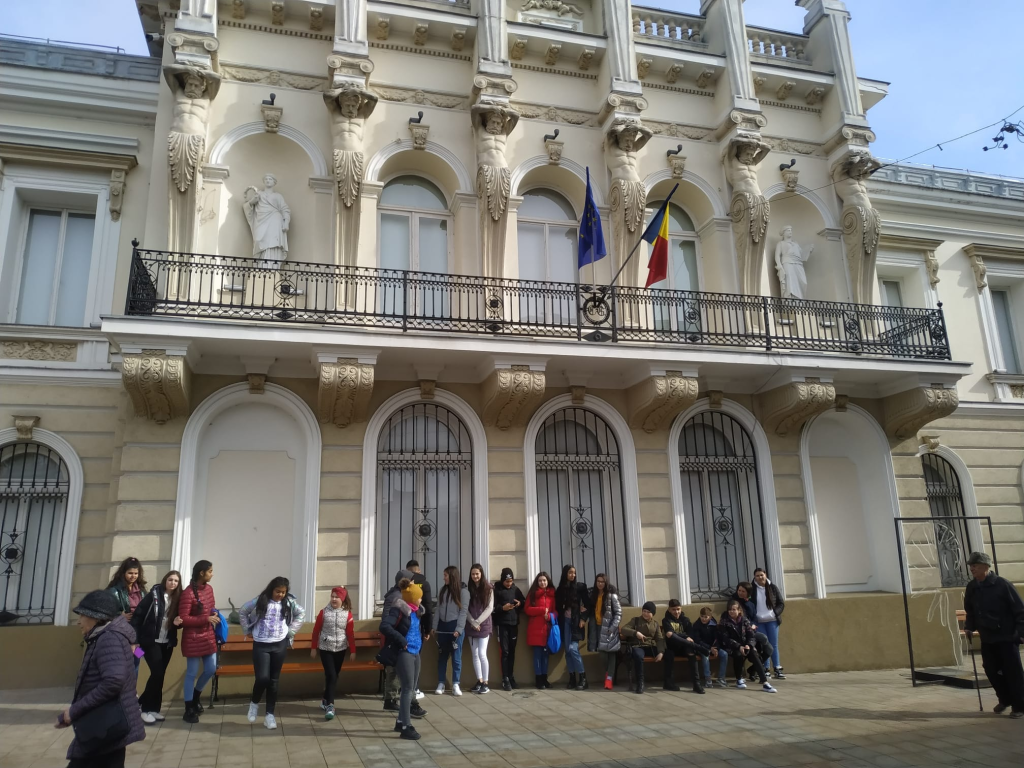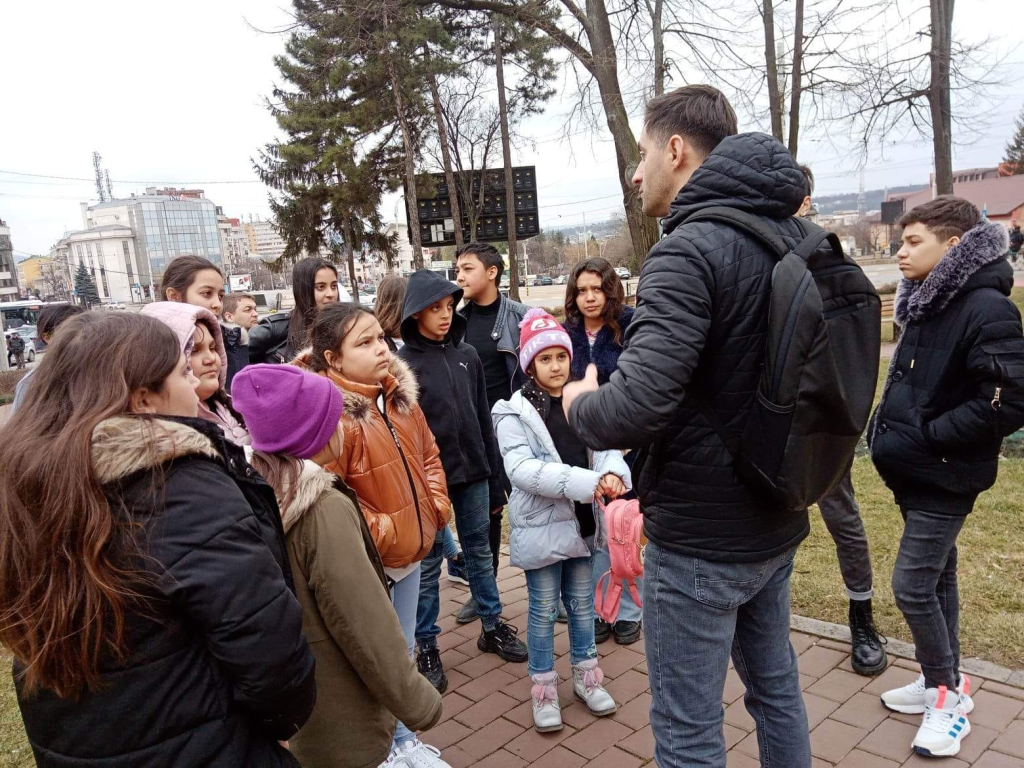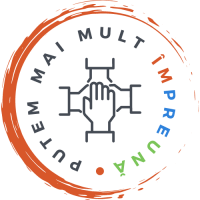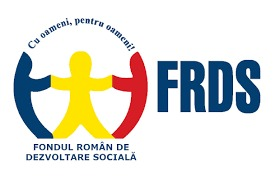
Community facilitation and development
20 communities from Botoşani, Brașov, Brăila, Buzău and Iași counties were selected to be part of the project "We can do more together". Also, the community facilitators were selected and trained in order to enter the community, and #together we formed 20 initiative groups at the local level.
The county coordinators with the facilitators and mobilizers carried out a series of field visits during which they identify those who wanted to be directly and actively involved in the project activities. In all 20 localities, the Local Initiative Groups were established (some of them being also approved within the Local Council meetings).
Training courses for LIG members and dissemination activities to other community members
100 members of local initiative groups and other Roma members of the communities participated in training courses.
In the first stage, the first two courses within the project were carried out – Community development and Communication, fundraising și advocacy, as it follows:
- 4th - 6th of June 2021 (Brașov)
- 11th -13th of June 2021 (Brăila)
- 18th-20th of June 2021 (Buzău)
- 25th-27th of June 2021 (Botoșani)
- 2nd-4th of July 2021 (Iași)
In March and April, respectively, the third training course, "Writing and implementing projects", for the members of the Local Initiative Groups, was held in-person, as follows:
- 26th – 27th of March 2022 – courses for LIG Brăila county members
- 26th – 27th of March 2022 – courses for LIG members, Brașov County
- 1st – 2nd of April, 2022 – course for LIG member in Iași County
- 9th – 10th of April 2022 – courses for LIG members in Buzău County
- 15th – 16th of April 2022 – courses for LIG member in Botoșani County
The main topics addressed during the course were: The “Tree” of Problems and Solutions, SMART Objectives, Activities and Indicators, Budget.
Also, the training course, "Public policies for Roma and local representation", took place during the period:
- 7th – 8th of May 2022 – courses for LIG members in Brăila county;
- 14 – 15 mai 2022 – cursuri membri GIL județul Brasov;
- 23-24 iulie 2022 în județul Iași;
- 29-30 iulie 2022 în județul Botoșani;
- 6-7 august 2022 în județul Buzău.
Each meeting was attended by 20 Roma people from the localities selected in the project. In the selection of participants we took into account their representation (presence of women and young people). The main topics addressed in this course were: Affirmative measures for Roma, Roma Inclusion Strategy, Roma rights as a national minority.
Also during these meetings with LIG members were debated: How do we identify needs and solutions?; How to plan and write a project?; How associative structures can get involved in the design and management of public policies for Roma in Romania; How various techniques can be used to correctly identify problems, to identify possible solutions; Different policy techniques and instruments used in the process of developing / implementing / evaluating public policies in general, and public policies for Roma.
Within each county there was a process of mutual learning between the staff of our team and the participants. Because they unfolded with physical presence, we were also able to enjoy the inevitable stories told at the end of each evening. And to everyone's delight we were able to benefit from the presence of people who had their quiver full of stories. How else could a discussion look like around the table where we find members of the well-known fanfare "Zece Prăjini", authors of books, people who have been working for decades in communities with Roma and many other categories. And above all, everyone was united by the same desire, to contribute by putting a brick in the construction of a society more friendly and open to collaboration.
Training courses for LPA representatives and other professionals working with Roma
A number of four courses took place, dedicated to the local public authorities, which addressed a number of 50 employees of the City Halls from the 20 localities (people who carry out their daily activity both with the Roma population and with the majority population, relevant for working in the Roma communities).
Representatives attended the following courses:
- Roma identity: Fundamental elements of Roma history and their influence on contemporary anti-Roma racism and the development of a Roma culture of internalised stigma. Stereotypes and prejudices about Roma. Anti-Roma speech. Roma identity. Roma vs. Gypsy
- Good practices for the promotion of Roma culture: dissemination of methods and tools for the promotion and development of Roman culture
- Local administration focused on the needs of the citizen, including policies
- Public policies for Roma as an engine of local development: Public policies for Roma - Roma Inclusion Strategy; Affirmative measures for Roma; Funding for Roma communities; Inclusion fo the needs of Roma communities in local development strategies.
Of the four training courses, two were started by the Community Development Agency "Împreună" and were carried out in June 2021 and November-December 2021.
Between 17th -18th of June, in Bucharest, a course was organized addressed to the local public authorities in the localities where the project "We can do more together" is implemented. The course on "Local administration centered on the needs of the citizen" was attended by 50 representatives of local public authorities.
The course aimed, at the end, the participants to have the necessary knowledge, skills and attitudes to open the decision-making processes in the local administration to public participation, to outline long-term public policy objectives, to be able to verify whether they correspond to the needs and aspirations of the inhabitants, respectively to build coherent and inclusive communication plans for vulnerable groups (Roma).
The main topics addressed in the course were:
• Needs versus problems;
• Communication of authorities-citizens;
• Decisional transparency;
• Equaled opportunities;
• Citizen involvement in decision-making.
At the end of the course, 27 of the participants completed the evaluation questionnaire. According to the responses received, the participants were generally satisfied with the content and form of delivery of the course, the organization and facilities made available. They appreciated the trainers and the methods used by them. Participants also found useful the exercises/activities that involved teamwork and the fact that they had the opportunity to exchange ideas, methods and opinions with the other participants.
At the same time, during the monthly meeting in September, together with all the partners within the project, we jointly decided that the following course addressed to the representatives of the LPA, should take place:
1) in Buzău with a group of 30 people from Brăila, Buzău and Brașov counties;
2) in Botoşani, with a group of 20 people from Botoşani and Iași counties, both in October.
Due to the increase in the infection rate with the Covid-19 virus towards the end of September, the project implementation team decided to postpone the training courses addressed to the APL representatives (although the LPA representatives were notified about the period of the next course and the participation of 50 people from the LPA was confirmed).
At the beginning of October 2021, the communication with the LPAs was resumed and information letters were sent regarding the organization of the courses online and with specific information about the period of the courses, the agenda of the event, and for new people, eager to skate, the personal data processing agreement to be filled in.
The courses were held according to the following program:
• 15th, 18th, 19th and 23th of November, 2021 group 1, trainer Mrs. Amarandei Mirabela, 25 participants from Brasov, Buzau counties and 2 localities from Brăila and Suţeşti county;
• 24th, 25th, 26th of November and 6th of December, 2021, trainer Mr. Codru Vrabie, 25 participants from Botoșani, Iași counties and 2 localities from Braila County, Insuratței and Viziru.
The second course had as main theme "Public policies for Roma as an engine for the development of the locality" and had as sub-themes:
• Public policies for Roma – Roma Inclusion Strategy;
• Affirmative measures for Roma;
• Funding addressed to Roma communities.
In parallel, the Local Initiative Groups worked on the elaboration of Local Action Plans, which were submitted within the mayoralties in order to be integrated into the local development strategies.
Through this project we wanted to put at the same table all the stakeholders directly or indirectly involved in achieving the desideratum to improve the living conditions and the satisfaction of a large number of needs for a large percentage of people.
Continuing education courses for teachers
Presentation of the courses' objectives:
1. Intercultural Education- for teachers from the five counties was one of the activities of the project "We can do more together" and aimed to familiarize teachers with information and strategies in the field of intercultural education, thus increasing the school participation of students and developing an optimal climate at school level with an impact on increasing school performance. Also, the training program was based on communication strategies and techniques tailored to real needs and involved part of e-learning within an online platform.
Intercultural education courses were held between October 2021 and April 2022 on the Zoom platform (due to the pandemic situation). Their trainers were Gelu Duminică and Cătălina Olteanu. After participating in the course, based on the information they found, the teachers that participated had the mission to carry out two activities of disseminating the information in class, to their students. Therefore, the principles of intercultural education: acceptance, knowledge of the elements of history and culture, diversity, etc. were promoted among the students, leading to the development of non-cognitive skills.
For this, the Community Development Agency "Împreună" has made available the educational materials, including: course support, storybooks, pedagogical kits to promote diversity, posters about Roma history, as well as online resources.
The course is accredited by the Ministry of Education and offers a number of 10 transferable professional credit points.
The training programme comprised four categories of modules:
- Diversity in the 21st century – Theoretical module that familiarized the participants of the training program with concepts essential for understanding, promoting intercultural education in order to develop relevant and meaningful competences for intercultural education;
- Legislative approaches from the perspective of intercultural education – the module included information about legislative documents supporting human/child rights;
- Intercultural values and attitudes – The module that familiarized the participants with the meanings of the fundamental concepts of intercultural education and provided support for identifying methods and techniques for promoting these concepts at the level of multiethnic, multicultural communities;
- Intercultural education, from theory to school and social practice – The module that provided information and support in order to capitalize and apply the curricula in the spirit of diversity and equity;
Follow-up activities
After completing the course, the participating teachers conducted two lessons in their school based on the support materials received during the course. The support materials were produced by the Agency "Împreună" with UNICEF Romania and had as a central theme the promotion of education among Roma by offering positive models from within the minority.
At the end of the activities, the students integrated the principles of intercultural education, got to know elements specific to different national minorities, developed their self-esteem and were introduced to successful models from the Roma community who succeeded in life through education.
Conducting the courses
The Intercultural Education courses were organized online on the ZOOM platform, taking place at the same time with two parallel groups, in the form of blended learning (40 hours). The course took place in a friendly atmosphere, in which theoretical and practical information was presented. Each time, the teachers had the opportunity to discuss, analyze various situations in the form of games, contribute with their own experience and draw valuable conclusions. Also, during the courses held, the participants shared experiences and we learned about their expectations regarding the course. Among the topics addressed so far are: inclusive and multicultural school, discrimination, Roma history and status, human rights, inclusive and quality education.

Knowing and understanding the elements of interculturality were fundamental for the learners. Much of the information the trainers gave students was encountered for the first time.

Last but not least, feedback was one of the imperative elements of this course, not only with the aim of improving the way of delivering information and the experience of students in the online environment, but also to better understand their needs, interests of those present. Thus, the trainers used the Jamboard application to collect information such as curiosities, opinions and expectations, at the beginning of the session, as well as at the end, about the teachers' opinion about the entire course. So, with the help of these opinions as well as constant feedback, the course focused on delivering information according to the needs or problems in the territory.
Expectations / curiosities and opinions from the participants at the beginning of the working session:


Feedback from participants at the end of the working session:



2. Roma history was the second course for teachers from the five counties within the project "We can do more together". The training program aimed at developing the level of knowledge by the teaching staff in the pre-university education (gymnasium and high school levels) regarding the elements of Roma history that would support the approaches of the appropriate curricular approach and adaptation of the school environment to the learning needs and interests of the students.
This course is accredited with a number of 10 transferable credit points, having the form of blended learning and 40 hours of training. Trainers in this course were Adrian Furtuna (who offered a sociological perspective on Roma history), Mariana Sandu (historical perspective, in general, information about Roma slavery) and Valentin Negoi (Holocaust, deportations).
Similar to the Intercultural Education course, the Community Development Agency "Together" provided educational materials, including: course support, storybooks, pedagogical kits to promote diversity, posters about Roma history, as well as online resources. After participating in the course, based on the information they found, the teachers had the mission to carry out two activities to disseminate the information in classes, to their students. At the end of the activities, the participants integrated the principles of elements of the history of the Roma community, got to know elements specific to different national minorities and learned about the past, which is sometimes overlooked.
Activities to increase self-esteem for Roma students and parents
Within this activity, activities will be carried out that will contribute to the increase of the students' self-esteem. Thus, the expert for increasing self-esteem will make a set of activities and fact sheets to monitor the impact they have on students, which will be sent to teachers in schools selected in the project. The activities will be designed to put students in a position to talk openly about how to relate to colleagues, teachers, parents, friends, but also about how they see themselves. At the end of each activity, students will complete a form to assess the impact of the activity (the form made by the expert to increase self-esteem).
The parents were also part of the Parental Education Program, which proposed a positive way for parents to interact, a context for discovering and amplifying positive experiences with children, a framework for valuing and stimulating new attitudes and behavior, as well as enriching the level of knowledge related to child growth, care and development.
Informative activities at community level on the rights of the Roma national minority, the promotion of Roma culture and identity
Blogging and vlogging workshop
Within the project we carried out an information activity through blogging and vlogging that aimed to train young Roma from the local level to represent the voice of their community. In the first stage, the training sessions were held with the 20 young women, sessions that were held weekly for 2 months and in which the girls talked about their community and learned methods and techniques of sketching a story. During the online workshops, the participants learned to:
• Collect a story
• Describe themselves in new creative ways
• To talk and write about what it means to them to be Roma
• To record a video message about what the International Roma Day means to them
• To speak openly about their fears
• Build a character
• To read and/or listen to personal, real narratives of Roma authors and to formulate questions about how they were built and why
• Identify and look for extra information about Roma female models in world history and discuss how they inspire them.
Because we really wanted to see each other in person, between July 21st and 24th we met in Iași with the 20 girls from Buzău, Brăila, Brașov, Botoșani and Iași counties for four days of mentoring workshops in the art of vlogging and blogging.
The girls were guided by our trainers who shared a little of their work with them, but also supported them in creating their own stories. There were four days in which we talked about identity, about community, about the tradition of the ‘’Zece Prăjini’’ Fanfare, about what it means to be a Roma woman today, what you come to discover about yourself when you first meet places that present the history of your ancestors, but also when you meet young people who seem to come from different worlds. And most of all, what stories do you get to pick up and write about yourself and the world with that. During these days, the girls found out what the documentation process meant, before writing a story, took interviews, were vulnerable both in their ranks and with each other, and created the first stories on TikTok.
Last but not least, in order for the girls to be ready to go out into the world and make their stories heard, with the beginning of the school year, several mentoring sessions were held where the girls had the opportunity to sketch 20 stories full of soul. Stories about us, about our families, about friends, about idols, about our community or about the places where only our imagination can take us.
Public debates organized to influence public policies at local, regional and national level
In order to ensure the sustainability of the project, in each county where we work, meetings were organized where the needs of the Roma communities were debated and solutions for them to be addressed including through strategic documents at county and regional level. The meetings were moderated by a team of Roma leaders and experts trained within the complex training program through which our voice can be heard.
Local initiative groups along with other organizations from the non-governmental sector took part in the organized public debates attended by representatives of local public institutions, in order to put the needs, interests and desires of the Roma community in the county development strategy / local development strategies.
Greening actions
Through each action in which we are aware of the diversity and multiculturalism, in the soul of each participant, an idea is born that will develop along with the person's feelings and thoughts, just like a planted seed that is given care . Because only together we can combat the effects of climate change in our own communities, we have planted over 300 trees in the 20 communities involved in the "We can do more together" project.
Equipped with the right gloves and tools, but also with enthusiasm, the students planted apple trees, pear trees, plum trees, apricot trees, peach trees, cherry trees, and quince trees. Teamwork and fun were always present, and students will be able to enjoy a wonderful orchard in the coming years. Also, the participating students had the opportunity to participate in discussions about the ways in which household waste can be selectively collected, what are the dangers of littering on the street or in green areas and what changes we can implement at the level of our household. By the end of the day the students learned that only through understanding and cooperation they can fight for a better future for themselves and their peers.
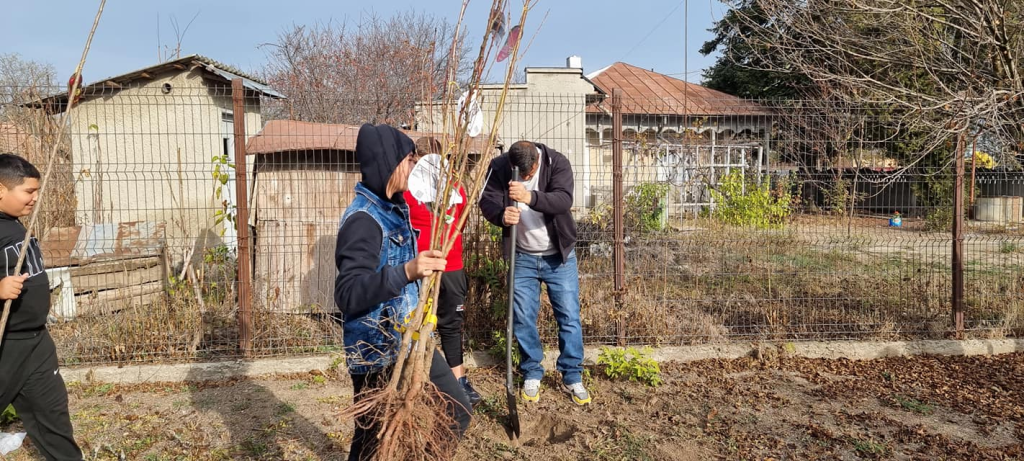
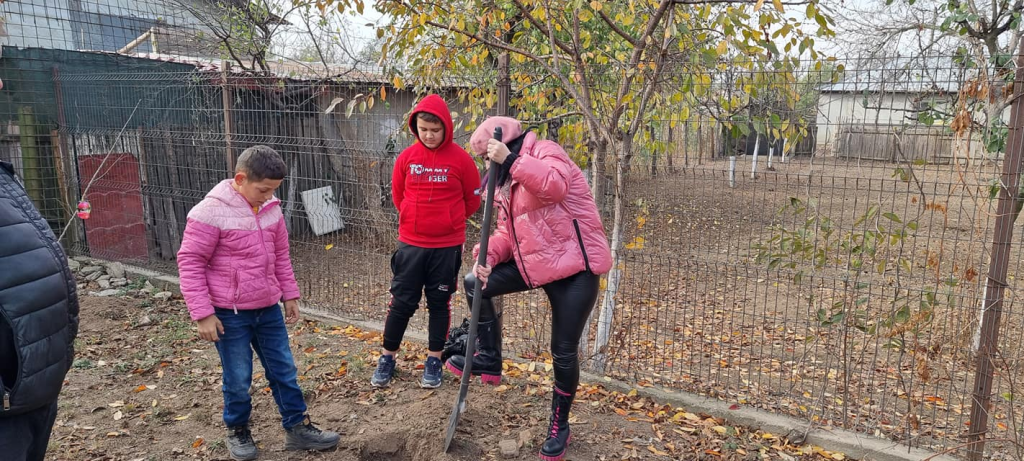
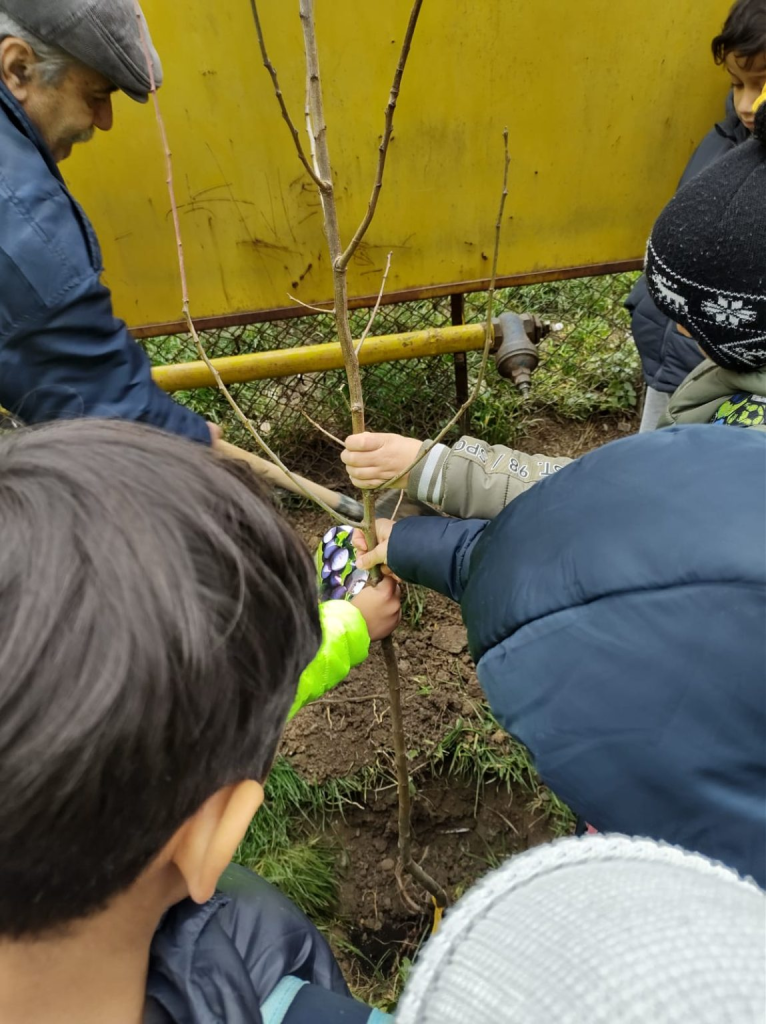
Friendship Cup at Football
Because we believe that diversity and inclusion do not take into account the circumstances, but also to value the uniqueness of each student in a pleasant and accessible context agewise, we came out with the "Friendship Cup at football". During this activity, the students from the 20 communities received the necessary equipment and formed mixed teams to then play some great football matches.
Before any football game, our organizing partners talked to the children about what discrimination means, racism, they talked about stereotypes and prejudicestalked about stereotypes and prejudices, about labels, but also about how important it is to give time to get to know those around us. At the end of this activity, the participants realized that the differences must be cherished because they make them better and only by working together they can bring something extra to the team, and then to their community.
This activity was aimed at increasing the self-esteem of children by valuing sports skills, as well as those of working in a team.



Marking the day of February 20th
February 20th is a day that reminds us of the stories, often untold or unknown, of our Roma ancestors who lived in slavery. In order not to let this date fall into the forgotten tabs of our history but also to draw attention on its importance, within our project we have organized with the help of our partners a series of activities.
In 2022, when the 166th anniversary of this event was marked, the local project initiative groups organized a series of activities. Among them is the meeting with the representatives of the local authorities, the directors of the educational units as well as other members of the communities where they talked about this dreadful period of our history, watched the film "The slavery of the Roma – The long road to freedom" and then debated topics such as: promoting the history of Roma in schools, the role of the teacher in promoting the cultural elements of roma in the classroom, but also the importance of the collaboration between school, community and institutions.
This year, marking 167 years since the abolition of Roma slavery, we gathered at Oprescu House in Bucharest, where the launch of the first Virtual Museum of Roma Culture took place..
The hosts of the event were the Romanian-Kher National Center for Roma Culture and the Amare Rromentza Roma Center Association, among with the partners from the local level, without which this initiative would not have been possible, namely: the Association of Marginalized Communities Botoșani, the Roma Association of Fagaras, the DANROM Făurei Association, the Buzau Community Development Agency Association and the Ursari Roma Association from Dagâța.
Marking important events in the life of any student: the first day of school, marking the winter holidays and June 1
In the life of any school student there are certain moments that deserve to be celebrated together. Within our project "We can do more Together" we have marked these important days of the school year, namely: the first day of school, the celebration of winter and June 1st
Thus, on the occasion of the beginning of the school year, the initiative group from Viperești commune (Buzău County) together with the Buzău Community Development Agency, school and city hall purchased 50 school bags, equipped with school supplies, so that the students from Viperești could start the zero grade with a smiles and energy for their first year of learning together. The members of the local initiative group came up with the proposal and application of this action, thus managing to mobilize both the parents in the locality and the local public authorities regarding the children. Result? 16 school bags were purchased from the local budget.
Children's Day in 2022 was about drawings on asphalt, games with drones, face paintings, cakes and sweet surprises for the children from Șuțești, Brăila County. The activities enjoyed by the approximately 350 children of the commune were organized by the City Hall, together with the Local Initiative Group, Șuțești.
This winter, Santa's sleigh stopped in the localities included in our project and brought the school students gifts prepared by his helpers. With the help of local initiative groups and schools, the students prepared a celebration in which they prepared several roma artistic moments to mark this beautiful time of year and sang carols in several languages (Romanian, Romani, English and Spanish).

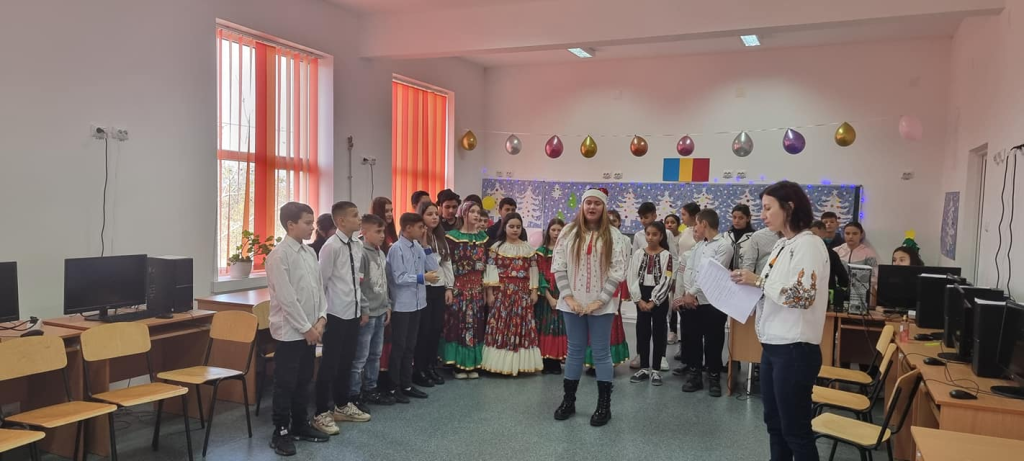

Themed excursions
One of the categories of beneficiaries to whom we paid close attention were the students, so when it came down to a need or desire communicated by them or their parents, we did our best to fulfill it. Students from several localities of Iași County expressed their desire to go on a trip to Iasi, the city of the 7 hills, to visit the cultural objectives in order to build their knowledge of the local history, and these were organized with the help of local initiative groups and partner schools.
Thus, the trips took place on:
- Moţca commune – February 22nd
- Crucea commune – February 22nd
- Dagâţa commune – February 23
- Pietriş commune – February 24
